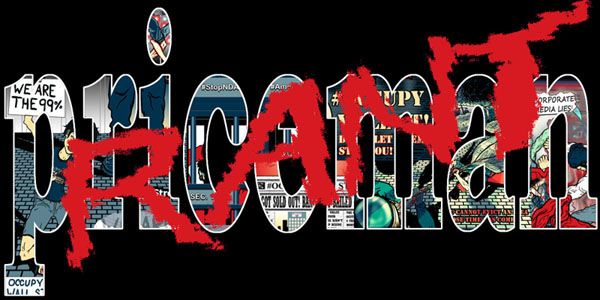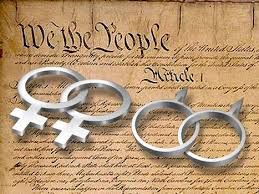Arguments in a case that threatens the ability of labor unions for public employees to organize, were heard before the Supreme Court this week.
For more than a half-century, the Supreme Court has upheld requirements that non-union workers pay a part of usual union dues assessed by a labor organization (which has a legal duty to represent them, too). That began with private-sector workers, and was then extended to public employees, when union organizing is allowed in that sector. But the extension of that approach to public workers is being challenged directly in a new case the Supreme Court has agreed to decide.
For public employee unions, the most important and enduring precedent in favor of shared financial responsibility for a union’s collective bargaining activity is the Court’s 1977 decision in Abood v. Detroit Board of Education. A group of home-care providers in Illinois, who do not want to belong to a union or to pay dues, and do not want a union to speak for them, have asked the Court to overrule the Abood decision if it means they must yield in their opposition.
When a union is named as the bargaining agent for a group of workers, it is under a legal duty to represent all the workers, including those who refuse to join. Under what is called the “agency shop” theory, all workers are not required to join the union, but they are required to pay through their dues a “fair share” of the union’s costs in representing them in bargaining over benefits and working conditions.
The Supreme Court has made clear, though, that the non-union members cannot be required to pay any part of a dues assessment that would cover the union’s political or ideological activity, to which those workers may (and often do) object. Forcing them to do so, the Court has said, would violate their First Amendment rights.
During the arguments, the justices were divided along some unusual lines:
The mood of the Court’s more liberal members was one of obvious trepidation, and that of its more conservative members – except for Justice Scalia – was of apparent eagerness to reach anew the core constitutionality of compulsory union support among public workers. [..]
The hearing Tuesday had only gone for couple of minutes when a lawyer for the National Right to Work Legal Foundation, William L. Messenger, was urging the Court to overrule Abood, and thus drawing heavy questioning from more liberal Justices, like Ruth Bader Ginsburg and Sonia Sotomayor, and, soon, Justice Elena Kagan.
What would turn out to be potentially decisive, though, was the Justice Scalia appeared determined to take away from Messenger his basic argument that public employee union activity is more about shaping public policy – with implications for the First Amendment – than about the traditional union role of seeking to improve the working conditions of those it represents. [..]
The home-care workers, their lawyer contended, were being coerced into financial support for a public employee union that wants to “petition the government” in their place, but in ways that some of those workers might well oppose.
That argument, though, would quickly gain the energetic support of Justice Anthony M. Kennedy, who repeatedly made an effort to push the whole argument up to the highest level of constitutional philosophy about protecting the diversity of views about what government policy should be. [..]
The trend of the argument with Messenger at the lectern appeared to have alarmed Justice Kagan, who said that what was being discussed was “a radical restructuring of the way workplaces are run” throughout the country. She noted the “passion and heat” now spreading across the country – as, for example – in Wisconsin, over the role of public employee unions. She wondered if it was “fair” to suggest that Messenger was actually arguing that a “right-to-work law [that is, no compulsory union support) is constitutionally compelled.” [..]
The questioning – explicit and implicit – of the Abood precedent was interrupted from time to time by questions from Chief Justice John G. Roberts, Jr., who seemed to be focused primarily on whether or not this case involved who decides the pay scales of home-care workers – state officials or federal managers of the Medicaid program for the poor and disabled. It was not clear where Roberts would be on the more basic question of public employee representation.
George Washington University Professor Jonathan Turley discusses with Alex Wagner, host of MSNBC’s “Now,” the case, which could destroy a union cornerstone: the ability to negotiate higher pay and benefits.
In his Washington Post opinion, Harold Meyerson sees the potential for the court to further align itself against the have-nots and the consequences for unions and workers:
If workers can benefit from contracts without paying even what it costs the unions to secure those contracts, those unions would suffer revenue declines that could render them toothless. Once their unions lost power, home-care givers – a group that is overwhelmingly female, disproportionately minority and almost universally poor – would be highly unlikely to get any more raises. Turnover rates within the care-provider workforce would surely rise.
Such a reconsideration could be of even greater consequence if Alito & Co. go further and rule that no member of a public-employee union should be required to pay the dues that go to securing his or her contract. With the decline of private-sector unions, public-employee unions have become the preeminent organizers of voter mobilization campaigns in working-class and minority communities, the leading advocates of immigration reform, the foremost lobby for raising the minimum wage and the all-around linchpin of the modern Democratic Party. A sweeping, party-line ruling by the five conservative justices in Harris could significantly damage the Democrats.
Whatever its effect on the nation’s partisan balance, a ruling that neuters the organizations that poor, working women have joined to win a few dollars an hour more would put a judicial seal of approval on the United States’ towering economic inequality. Well into the New Deal, the Supreme Court consistently overturned laws that enabled workers to win higher wages, helping to delay the advent of the middle-class majority that emerged after World War II. It now has the option to speed that middle class’s demise.



 The Supreme Court ruled on two important cases for the LGBT community: Windsor v. U.S., addressing the
The Supreme Court ruled on two important cases for the LGBT community: Windsor v. U.S., addressing the
Recent Comments